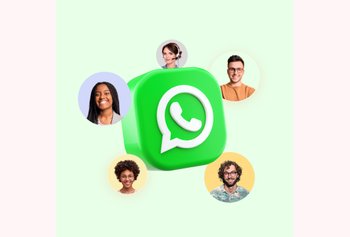15 Best Live Chat Software for 2025
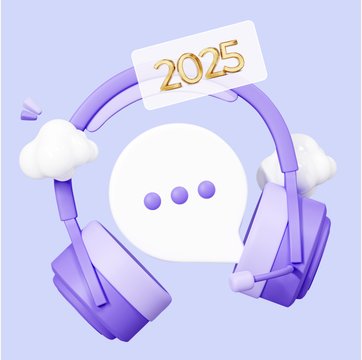
Table of contents
“Speed is everything in business.”
And rightly so! These days, customers don’t prefer to wait around for answers—they want help instantly, in real time. It’s no surprise then that our ‘State of Customer Support’ report found 63% of customers to choose live chat over any other channel when they need to reach out to a business.
Now, to equip your business to meet these customer needs, what you need is a live chat software. In this guide, I’ve reviewed the top 15 tools – with a detailed breakdown of their features – that can help you chat with customers in real-time, and provide immediate assistance.
Table of Contents
- What is live chat software?
- Top 15 Live chat Software Solutions for 2025
- Features to look for in a live chat software
- Real-World Examples of Businesses Using Live Chat Software
- Choose the best live chat software for your business
- Frequently Asked Questions (FAQs)
What is live chat software?
Live chat software is a technology that allows businesses to communicate with customers and prospects in real-time through text-based messaging. It is typically embedded on a company’s website or mobile app, and can also be integrated with other communication channels such as social media (think Twitter or Facebook) and messaging apps (think WhatsApp).
By facilitating real-time communication between customers and support staff, a live chat software can significantly improve speed of service.
Now, to explain this, let’s take a simple example. Say you run an online clothing store. You plan to integrate a live chat widget in your website. A customer browsing your site wants to check jacket sizes. They spot a small chat icon in the corner of the page, click on it, and type their question into the chat box.
This notifies your customer support team that there’s a new customer chat. One of your support staff responds and helps the customer out, then and there. It’s that quick and simple.
Hiver’s website has a live chat widget on all pages. You can use it to initiate a chat with any of our support staff. Try it out if you want to see how it works.
Top 15 Live chat Software Solutions for 2025
There are no two ways about it; customers today are flocking to brands that provide the highest level of service in the quickest possible time.
That’s why I’ve put together a roundup of the best live chat software for business with their key features and pricing, to help you make the right choice.
| Tool | Key features | Free trial | Starting price | G2 rating |
|---|---|---|---|---|
| Hiver | – Assignments – Automation – Templates – App notifications – Analytics – AI capabilities | 7 days | $19/user/month. Has a free plan as well. | 4.6/5 ⭐ |
| Chatra | – Real-time chat – Track visitor behavior – Collaborate on chats – Chat assignment on agent groups – Set operation hours – Integrate with popular tools | 10 days | $17/user/month. Has a free plan as well. | 4.2/5 ⭐ |
| TeamSupport | – Omnichannel chat support – Customizable chat widgets – Robust integrations | Not mentioned on the website. | $29/user/month | 4.4/5 ⭐ |
| REVE Chat | – Live chat functionality – AI-powered chatbots – Video and voice chat – Co-browsing to share screen with customers | 14 days | $15/user/month | 4.5/5 ⭐ |
| Crisp Chat | – Cross-channel continuity – AI-guided resolution – Real-time notifications – Robust integration options | 14 days | $95/user/month. Has a free plan as well. | 4.5/5 ⭐ |
| Smartsupp | – Visitor recording – AI capabilities – Mira, the shopping assistant – Mobile app – Email notifications | 14 days | $14/user/month . Has a free plan as well. | 4.7/5 ⭐ |
| LiveChat | – Real-Time Chat – Visitor Information – Agent Reporting – Mobile Applications | 14 days | $20/user/month | 4.5/5 ⭐ |
| Olark | – Automated messages – Real-time reporting – Searchable transcripts – Targeted chat and chat monitoring | 14 days | $29/user/month | 4.3/5 ⭐ |
| Zendesk Chat | – Chat dashboard and widget – Live visitor view – Chat history and transcripts – Real-time monitoring – Omnichannel customer support | 30 days | $55/user/month | 4.3/5 ⭐ |
| Intercom | – AI capabilities – Seamless integration – Cutting-edge technology – Omnichannel support – Multilingual capabilities | 14 days | $29/user/month | 4.5/5 ⭐ |
| Drift | – Conversational sales and marketing – Custom chatbots – Playbooks – Chat to call or chat to zoom – Real-time notifications – Conversational landing pages | 30 days | $2,500/user/month | 4.4/5 ⭐ |
| Userlike | – Operator groups – All-inclusive button integration – Forwards with context – Sticky chat – Smart customer profiles – CRM integrations | 14 days | $90 for 4 user/ month | 4.4/5 ⭐ |
| FreshChat | – Email and chat campaigns – Customizable chat widgets – Advanced reporting metrics – Integration with CRM systems | 14 days | $15/user/month | 4.4/5 ⭐ |
| JivoChat | – Omnichannel support – Visitor monitoring – Customizable widgets – Canned responses – Performance reporting | 14 days | $19/agent/month | 4.6/5 ⭐ |
| LiveAgent | – Customizable chat buttons – Proactive chat invitations – External app integrations – Smart chat routing – Visitor tracking | 30 days | $15/user/month | 4.5/5 ⭐ |
1. Hiver
Hiver is a customer support software that offers live chat as one of its core features. With its live chat, you can assign chat queries to the right support staff, collaborate internally on these queries when a need arises, and track their status until closure—all from a single platform.
What sets Hiver apart is that it works right inside your inbox—Gmail or Outlook. This means your support agents can handle live chat queries alongside emails and other support channels without ever leaving their inbox, whether on desktop or mobile. It combines simplicity and efficiency.
Best suited for: SMEs that use Gmail or Outlook for workplace communication.
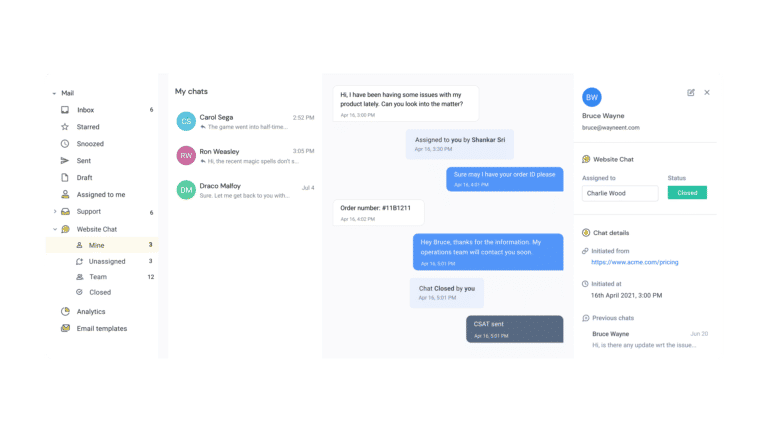
Key features:
- Assignment: Assign incoming chats to agents in a round-robin manner.
- Automations: Set up missed chats alerts, live chat agents availability hours and auto-assign queries based on agent skills.
- Templates: Provide really fast support by leveraging canned responses (chat templates) for repetitive and common queries.
- App notifications: Leverage in-app chat notifications to alert customers when agents are unavailable and divert them to use another channel (eg. email/phone) to raise tickets.
- Analytics: Use Hiver’s robust analytics to track the performance of your team and measure key metrics such as turnaround time, average resolution time, and more. This helps you gauge how quickly customers get help when they use your live chat widget.
- AI capabilities: Teams can use AI-derived suggestions when responding to customers. This further makes it easier to interact with customers and assist them as quickly as possible. You don’t have to type out responses from scratch.
- Customization options: Tweak the live chat UI with your logo, brand style, and color palette.
Pros:
- Users love that Hiver integrates seamlessly with their inbox – Gmail or Outlook. This way, support staff don’t have to switch between multiple tabs – since everything can be done from their inbox – or spend time learning a complicated interface, which is the case with most live chat platforms.
“Better than ZenDesk!”
What do you like best about Hiver?
We love that we could keep our GMAIL but just add Hiver to help organize, assign and tag. There was little to no learning curve for users. The customer service has been friendly and always quickly available via chat. – Sally S. | G2
- Hiver’s customer support is available 24×7, irrespective of what pricing plan you are on.
- Hiver’s mobile app enables you to manage your chat queries even when you’re on the go.
- You can generate and share chat transcripts within your team to deliver contextual support.
Cons:
- If your team uses any other email service provider other than Gmail or Outlook, you won’t be able to use Hiver.
Pricing:
Hiver offers a free plan that helps you manage customers across multiple channels – including chat – at zero cost. The paid plans start from $19/user/month, and can go up to $79/user/month.
2. Chatra
Chatra, by Brevo, is a live chat software that helps businesses engage with website visitors (customers and prospects) in real-time.
You either have the option to set up a live chat widget on your site or use their messenger mode that allows you to respond to messages at your own pace. This is particularly useful when your team is offline.
Chatra has a user-friendly interface and can also be integrated with social media platforms like Instagram and Facebook.
Another cool feature is group chats, which allows multiple agents to interact with the same customer. When you’re working on a complicated customer issue that requires inputs from multiple people, this comes in handy.
Best Suited For: E-commerce retailers that are looking to offer chat support across their website and social media profiles.
Key features:
- Real-time chat: Chatra enables businesses to chat instantly with visitors and answer questions on the spot.
- Track visitor behavior: The tool shows visitor details like location and browsing history to help businesses tailor their responses. On higher plans, you can also see what items they have in their shopping cart to personalize your messaging.
- Collaborate on chats: Team members can collaborate internally on chat queries to provide faster responses.
- Agent Groups: You can also assign customer chats to a group of agents. This helps when you have to collaborate and respond.
- Operation hours: Set specific hours when you want to be available for chat. This sets clear expectations with customers on when they can expect a response.
- Integrate with popular tools: Businesses can connect Chatra to Slack, Facebook, or email to manage conversations across channels in one place.
Pros:
- Chatra’s interface makes it easy for teams to get started with minimal training.
- Agents can handle chats via web, desktop, or on mobile. This level of flexibility is good to have, especially for remote teams.
- Chatra provides a free plan for the most essential chat features. And from what we’ve seen, users love their free version.
“The free version of Chatra itself provides the best service to manage the chats to manage the customer. Helpful and easy to integrate with Slack & other platforms.” –Ramesh Kumar M. | G2
Cons:
- Some advanced features found in other live chat tools may not be available.
“We have been using it for several years, and there are few updates and rarely new features. We have contacted the team for feature requests but it has always remained unaddressed.” – Raphaël M. | G2
- Occasional glitches that include delayed notifications.
Pricing:
Has a free plan that can accommodate only one user. Paid plans start from $17/user/month and can go up to $23/user/month.
3. TeamSupport
TeamSupport is a live chat software built with the aim of ‘meeting customers where they are’. It empowers support teams to communicate with customers in real-time and build strong relationships.
Out of its many features, the auto-translate functionality stands out as it helps translate messages to your preferred language without manual effort. For a business that is present in multiple countries, this is very essential.
Best suited for: Businesses of all sizes. Particularly for the healthcare industry since the tool is HIPAA compliant.
Key features:
- Omnichannel chat support: Customers can reach out via chat and other support channels such as email. All interactions are centralized making it easier for your support team to respond and resolve queries.
- Customizable chat widgets: Businesses can design the chat interface to match their brand guidelines.
- Robust integrations: Integrates seamlessly with other productivity tools like Salesforce, Slack, HubSpot, Jira and more.
Pros:
- Easy to set up and customize.
“The chat window is contemporary and easy to customize, which was essential for us since we wanted it to match the visual style of our site.” – Cheyenne A. | G2
- Their customer support team is quite responsive and fast-tracks priority queries.
Cons:
- Can be expensive compared to some other tools in the market. For instance, Hiver offers a live chat feature for free.
- The mobile app version lacks some features, which makes team collaboration difficult when you’re on the go. Here’s a review on the same lines.
“The mobile app needs greater improvement for clicking through from a ticket to see customer contact info as well as viewing attachments on the ticket, this has hampered our abilities to fully implement use of TeamSupport to our mobile staff.” – TeamSupport user | G2
Pricing:
Basic plan starts from $29/user/month and can go as high as $49/user/month.
4. REVE Chat
REVE Chat is a customer communication platform that enables businesses to interact via IM-enabled live chat, AI-powered chatbot and video chat. Due to its AI capabilities, The company claims that it can enable teams to respond 10x faster.
Best suited for: Businesses of all sizes looking for advanced live-chat functionalities.
Key features:
- Live chat functionality: Arm your live chat with human support staff and respond to customer inquiries in real time.
- AI-powered chatbots: Handle regular customer and prospect questions without any human intervention. Reduce workload of support teams so that they can focus on more complex challenges.
- Video and voice chat: Teams can connect face-to-face with customers to resolve complex issues.
- Co-browsing: Agents can guide customers by sharing their screen and showing the answer/solution as a walkthrough.
Pros:
- Brings together live chat, chatbots, and video chat interactions into a single dashboard.
“I like many features available in their chat service including Video Chat, Voice Call, Facebook Messaging and more.” – Lasantha Bandara K. | REVE Chat user
- It integrates seamlessly with many other tools, including WordPress – which is quite rare.
- You can also set up automatic triggers on the chat widget. This way, it can target your website visitors with the right messages at the right time based on the URL.
Cons:
- Users have mentioned that the UI of the widget needs improvement.
- Some reviews also state that the trial period is quite short to try out all the features.
Pricing:
Starts at $15/user/month and can go up to $49/user/month
5. Crisp Chat
Crisp is an all-in-one messaging platform that centralizes customer interactions across various channels, including live chat, email, Messenger, WhatsApp, and Instagram. Apart from the live chat functionality, it offers features like a shared inbox, knowledge base, chatbots, and integrations with a wide range of tools including Zapier, Data Cleaner and Autoresponder.
Best suited for: Sales, marketing, and support teams. It is also ideal for those looking for a chat widget with a wide range of integrations. For context, Crisp can connect with 100+ productivity tools.
Key features:
- Cross-channel continuity: Customers can start chatting on your website and continue the conversation via email seamlessly. This ensures that even after they leave your site, they can reach out to you for follow-up questions. And the best part is even if they respond from their inbox, the response appears in the chat thread for agents. You don’t have to switch between tools to interact with customers.
- AI-guided resolution: With AI-powered chatbots you can automate responses to common asked questions and deliver instant support to your customers.
- Real-time notifications: Keeps teams informed about new customer messages and customer activities instantly.
- Knowledge base integration: Provides a self-service option for customers to find answers to frequently asked questions right from the chat window.
- Robust integration options: You can integrate Crisp to a non-exhaustive list of website builders like WordPress, Shopify, Magento 2, Webflow and more.
Pros:
- Offers integration with 100+ tools.
“I already knew Crisp for web apps but was looking for a new chatbot solution for a React Native app. I only needed a simple, quick to install solution and found your React Native SDK which was very easy to install and set up. Among competitors, not many React Native SDK are available.” – Marin B. | Crisp user
- Crisp’s support team is very proactive
- Easy to set-up and navigate.
Cons:
- Users have noticed occasional technical glitches.
- Creating marketing campaigns can be a bit confusing for beginners.
“Creating campaigns can be a bit confusing, but their customer support makes it all easier!” – Justine M. | Crisp user
- Can be expensive for some businesses.
Pricing:
Offers a free plan for 2 users. Paid plans start from $95/user/month.
6. Smartsupp
Smartsupp combines live chat and AI-driven chatbots to answer queries from customers 24/7. It lets businesses interact with website visitors in real-time, automate answers to common questions, and deliver personalized assistance through its AI assistant, Mira.
The tool can track visitor behavior and record conversations with the aim of driving conversions. Teams can also customize the chat widget to align with their website’s brand guidelines.
Best suited for: E-commerce businesses and online retailers looking to engage visitors, provide quick support, and drive conversions.
Key features:
- Visitor recording: Allows businesses to watch recordings of visitor sessions (heatmaps) to understand user behavior and identify areas for improvement.
- AI capabilities: Smartsupp’s AI monitors visitors’ behaviour on your website and sends proactive messages based on their actions. This is a great way to engage with potential customers, reduce drop-offs. and guide them towards what they’re looking for.
- Mira, the shopping assistant: Mira is another AI feature of the tool that auto-suggests product recommendations and also answers common queries instantly.
- Mobile app: Comes with a mobile app. Support teams can respond to customer inquiries on the go.
- E-commerce integration: Seamlessly integrates with popular e-commerce platforms like Shopify and WooCommerce.
- Email notifications: You can enable this feature to get email notifications on missed chat conversations while you’re offline.
Pros:
- Visitor recording offers valuable data to optimize user experience.
“The real-time insights into how people are navigating the site have been priceless—it’s like having an extra set of eyes to understand what visitors are looking for.” – La Dolce I. | G2
- Users find the tool’s UI to be quite intuitive and straightforward.
Cons:
- Search functionality is not that robust on the mobile app.
“Sometimes a conversation gets lost (to us) when using the app.” – Erwin M. | Smartsupp user
- It can be a little difficult to implement automation rules on chatbots.
Pricing:
Has a free plan. Paid plan starts from $14/user/month and can go up to $239/user/month
7. LiveChat
LiveChat is a customer service platform that combines chat, ticketing, and a strong analytical dashboard to help you deliver seamless customer experiences.
Their core offering is the chat tool, and it comes loaded with features that include chat tags to categorize every conversation. The tool also comes equipped with chat widget customizations, a robust analytics and reporting system, and more.
Best suited for: SMEs and large enterprises that need to provide real-time support to their customers. It is also suitable for e-commerce businesses because LiveChat integrates with Shopify, Magento and other e-commerce platforms.
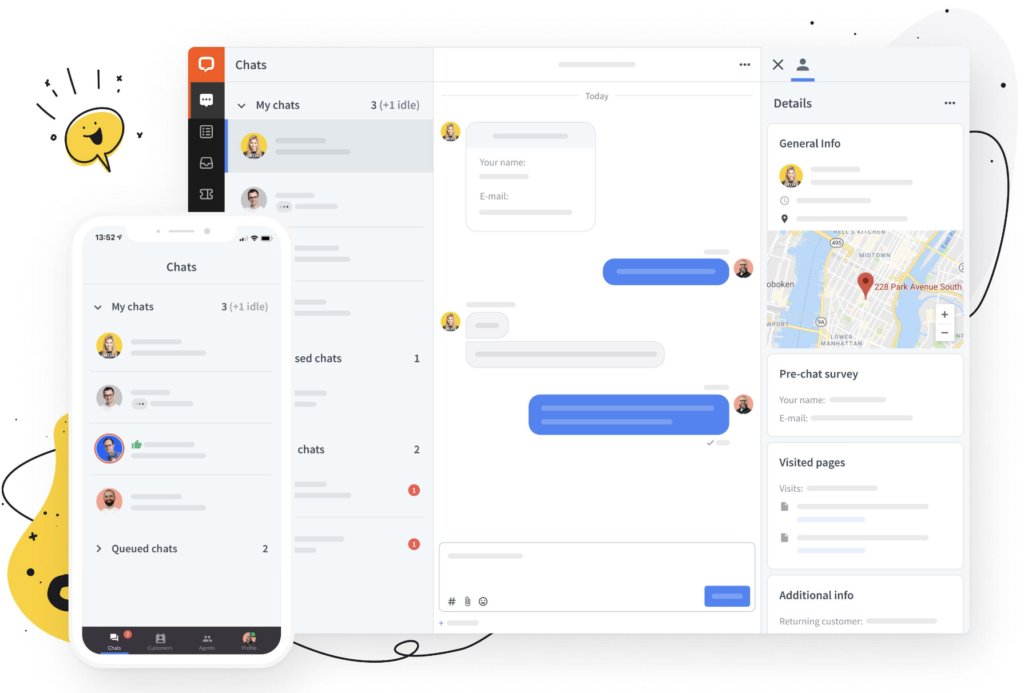
Key Features:
- Real-time chat: Enables customers to talk to your support staff in real-time.
- Visitor information: Provides insight into a visitor’s location, pages visited, and more.
- Ticketing system: When a customer leaves a message offline, the system automatically converts this message into a ticket. This ticket is then queued for agents to address when they are next available.
- Chat ratings and surveys: Collects feedback from customers regarding their chat experience. This helps measure support quality.
- Customization: Customizable chat widgets to match your company’s branding.
- Mobile applications: Offers a mobile app for managing chats on-the-go.
- Integration: Seamlessly integrates with various third-party applications like email marketing tools, social media, and e-commerce platforms, among others.
Pros:
- Easy to use with a user-friendly interface.
“LiveChat has a unique user interface allowing users to easily navigate through and initiate chats with our customer support team. Prices are also reasonable considering all the products and features provided.” – Akshay D. | LiveChat user
- Efficient real-time communication enhances customer satisfaction.
- Comprehensive reporting features for monitoring performance.
Cons:
- Occasional technical glitches.
Here’s a review from a LiveChat user on G2 where he talks about the technical glitches in the tool:
“The app is laggs a lot. Sometimes there are a lot of glitches which take alot of time to update.”-Deepak N. | LiveChat user
Pricing:
LiveChat’s plans start from $20/user/month and can go upto $59/user/month. It also offers a custom plan based on your needs.
You may also like: Your Comprehensive Guide to Live Chat Support
8. Olark
If you are looking for a cloud-based live chat app that helps you engage with customers through your website, Olark is a good option to explore. It integrates well with the HTML code of your website, allowing you to incorporate live chat options across all website pages. Olark can be used to manage leads, drive sales, and provide support.
Olark’s dashboard and customized reports will give you real-time inputs on chat volume, customer satisfaction, and agent activity. This will help you make sound staffing and prioritization decisions.
Best suited for: Olark is a great fit for all types of businesses due to its ease of setup. It’s particularly beneficial for sectors such as higher education, retail, eCommerce, and SaaS, where engaging with customers or stakeholders in real time is crucial.
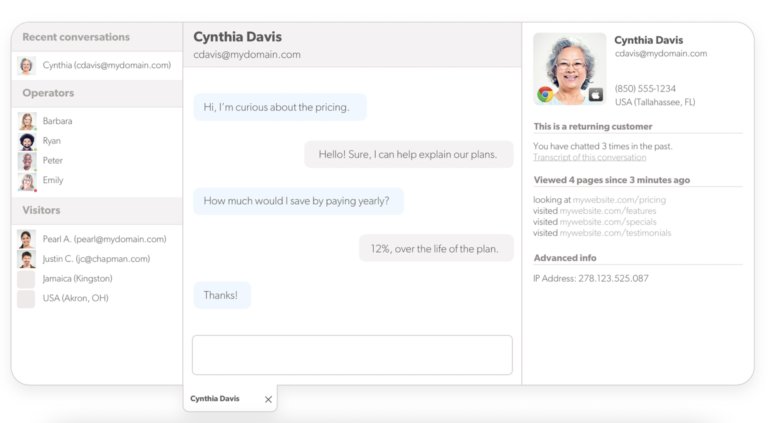
Key Features:
- Automated messages: Olark provides automated messaging features to engage customers and speed up workflow. For instance, Pre-Chat Surveys in Olark collect basic info from customers before a chat, aiding in personalized interactions.
- Searchable transcripts: This feature helps in maintaining a searchable record of chat interactions.
- Customization: Olark has customizable chat box options, like color, shape, position, and appearance, allowing users to place a chatbox on multiple websites.
- Targeted chat and chat monitoring: These features enhance engagement by targeting specific customers and monitoring chat interactions. For instance, if a visitor is on a software pricing page for a while, a targeted message could pop up saying, “Hi there! Can I help clarify our pricing options for you?” Such proactive engagement based on visitor behavior helps address potential uncertainties and can guide the visitor closer to a purchasing decision.
Pros:
- Olark is described as easy to use and customizable, making it a preferred choice for many companies worldwide.
- Users appreciate Olark’s automation capabilities like triggered messages that initiate conversations based on customer behavior on the site.
Here’s what a user has to say about Olark’s tailored messaging feature:
“I like how you can see the pages and activity of the visitor through the chat portal and the ability to tailor messages based on the page or activity. I also like how in the chat, it shows you the UTM params or referral source and also integrates with salesforce.”- Lisa T. | Olark user
- Olark allows the personalization of agent profiles and chat interfaces. Each team member can have a distinct profile with their own set of responses.
Cons:
- Olark lacks certain features like email campaigns and pop-ups, which can be useful for marketing teams.
- Some users wish for better integration with tools like Salesforce, indicating possible integration limitations.
“Doesn’t support the intelligence routings based on agents availability and integration with other CRM applications such as Salesforce.” – User review | G2
You may also like: 9 Must-Have Customer Support Tools to Include in Your Tech Stack in 2025
9. Zendesk Chat
Zendesk Chat helps you proactively engage and manage customer chats with ease, using its queue management and routing capabilities.
A few of the features that are worth a mention with Zendesk Chat include in-depth live chat reports, trigger messages, pre-chat and offline forms, and integrations with third-party platforms.
Best suited for: Particularly useful for companies that already utilize other Zendesk products and are looking to consolidate their customer support channels into one dashboard.
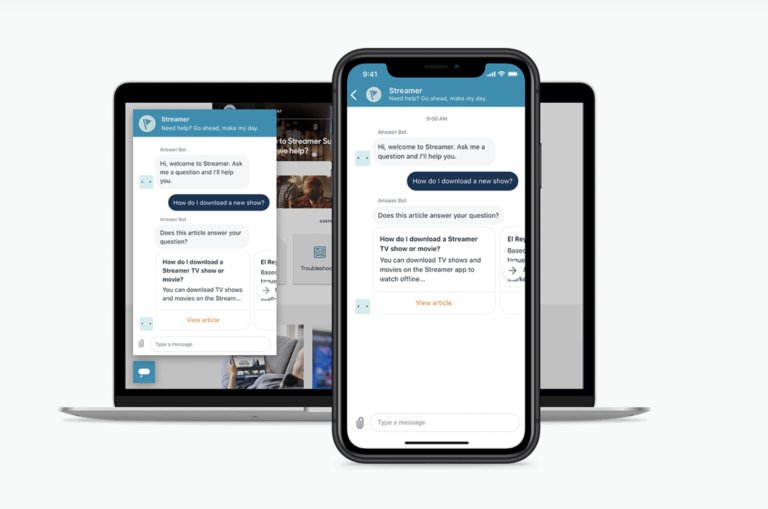
Key Features:
- Chat dashboard and widget: The chat widget is installed on your website, enabling visitors to initiate conversations. It supports file attachments, chat ratings, and chat transcript forwarding and can be customized to match your brand.
- Live visitor view: Allows monitoring of active visitors on your site in real-time, tracking their engagement and the pages they are viewing. You can proactively start chats, group visitors by activity, and even identify returning visitors.
- Chat history and transcripts: View a detailed chat transcript that includes the visitor’s name, agent that handled the chat, the time of chat, the visitor rating, and the number of messages exchanged.
- Real-time monitoring: Get a real-time overview of chat metrics like current response time, number of visitors in the queue, and chat duration.
Pros:
- Easy to use and integrates seamlessly with Zendesk’s ticketing system.
“The chat service is easy to use and makes communication with multiple customers at a time a breeze. Chat logs migrate seamlessly into the Zendesk ticketing system so we have a good history of chats with customers.” –Anthony T. | Zendesk user
- Live visitor monitoring that helps you proactively engage with website visitors.
Cons:
- Limited customization options on lower pricing tiers.
- The mobile app can be slow sometimes.
“The ZenDesk support suite has advanced and complex features that require IT resources for configuration and customization according to the company’s needs, which also need Budgets and extract costs. This could be a barrier to start-up companies that have small capital and low-skilled labour that might need training. Moreover, the functionality of the mobile app is not efficient for the users because of its slowdown during the process.”Olivier I. | Zendesk user
Pricing:
Zendesk Chat is offered on all Zendesk paid plans starting from $55 per user per month.
Hiver vs Zendesk: Reasons, Reviews, and Ratings
10. Intercom
Intercom‘s live chat tool helps you proactively support customers on your website using targeted content and behavior-driven messaging.
Intercom can work seamlessly with your existing tech stack to give customers a choice of self-serve or live support. Its resolution bot offers 24/7 automated support, which means your customers get the assistance they need even if your team is offline.
Best Suited For: Businesses looking for a powerful live chat functionality to provide instant, accurate responses to customer queries. It is ideal for businesses that wouldn’t mind paying a bit more for advanced chat functionalities.
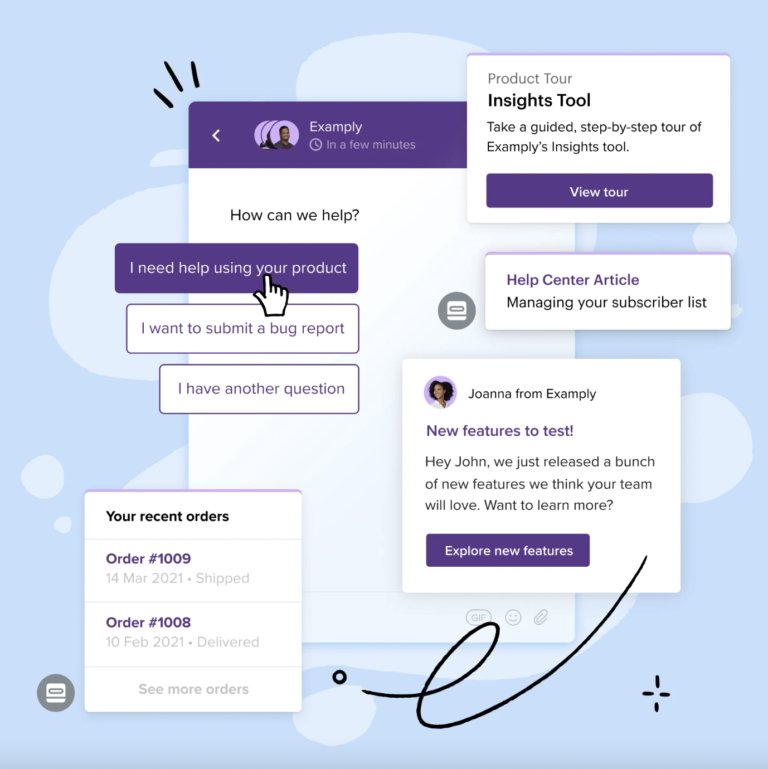
Key Features:
- AI capabilities: Fin, Intercom’s AI assistant, and chatbot, leverages advanced natural language processing to understand and respond to customer queries quickly and accurately. It adapts to context, learns from past interactions, and integrates with your business tools to deliver seamless, efficient support.
- Seamless integration: Integrates with your existing knowledge base to provide accurate and relevant responses to commonly asked queries on chat. Complex queries get automatically routed to human support staff.
- Cutting-edge technology: Utilizes GPT-4 technology to ensure accurate and immediate responses.The ChatGPT API technologies allow it to optimize for accuracy and reduce inaccurate answers.
- Multilingual capabilities: Has the ability to resolve customer queries in up to 43 languages. If your business serves customers in multiple countries, this feature really comes in handy.
Pros:
- Users love the AI features of Intercom – especially Fin, the AI assistant.
“Fin is a win
We’ve been using Intercom and Fin, and it’s been a lifesaver! Fin has been great at sorting through all the junk and flagging the real issues that only humans can handle. Plus, it was super easy to set up, and the Intercom support team has been awesome whenever we’ve run into any problems. The platform itself is really powerful for customer support, and the integrations with other apps we use have been a huge bonus. I definitely recommend it to anyone looking for a top-notch customer support solution!” – Rael d. | Intercom user
- Automations are easy to set up.
- Intercom supports live chat in multiple languages This helps businesses cater to a larger audience across the globe.
Cons:
- Can be expensive for small to medium businesses. This is especially true if you use Fin, which is priced at $0.99 per resolution.
Here’s what a reddit user has to say about Fin, the AI agent’s pricing:
“My Intercom billing shot up by 120%, it was because of AI chatbot.
I used Intercom’s AI chatbot fin for my company, the cost shot up and I’m not able to see significant productivity improvement. I was already spending over $4k/month, with 40 agents. Now its shot up to $9k.” – Reddit discussion
Pricing:
Paid plans start from $29/user/month and can go up to $132/user/month. You pay another $0.99 for every interaction that is resolved by Fin.
Recommended Read: 8 Takeaways From Customer Service Experts on Live Chat Support
11. Drift
Drift‘s AI chatbot helps keep a tab on your website visitors and interact with them at scale in a human-like way. It empowers visitors to self-serve low-level queries and enables your support team to direct their focus on high-priority issues.
The software also has integrations with commonly used apps such as Marketo, Salesforce, Salesloft, Demandbase, and more.
Best suited for: Medium to large-sized companies looking to improve their website conversion rates and shorten sales cycles.
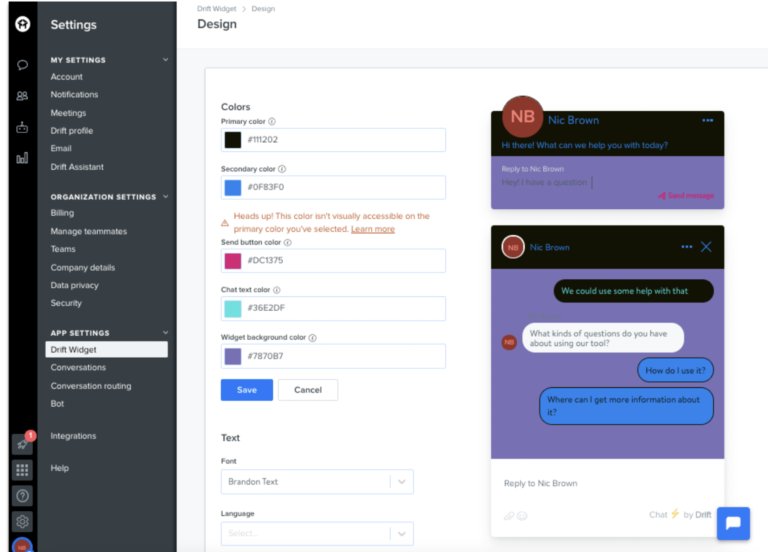
Key Features:
- Custom chatbots: Create custom chatbots to handle common queries and automate the lead qualification process.
- Playbooks: Target open opportunities when they return to your website and route them to their account executive.
- Chat to call or chat to Zoom: Instantly initiate phone calls with prospects to qualify them on the spot.
- Conversational landing pages: Helps you build conversational landing pages that engage visitors in real-time conversations. Unlike traditional landing pages that use static content and forms, Drift integrates chatbots to deliver immediate and personalized interactions.
Pros:
- Users love Drift’s reporting features, which help teams track key metrics like CSAT, response time, conversion volume,, and more. These insights enable teams to analyze performance, improve conversations, and make data-driven decisions.
Here’s a review from a user who found Drift’s reporting feature quite useful:
“Drift is a great tool to connect with and engage with different visitors on your site. The reporting really allows you to dive into what is working and what’s not, so that you can work to create the optimal experience for your visitors. In terms of actually building out playbooks, Drift makes it easy to set up different playbooks with its drag-and-drop builder and cloning feature. It’s easy to create multiple playbooks to test out different ideas and create a personalized experience on the site.” – Drif user | G2
- Flow builder isan intuitive feature for organizing page layouts, and enhancing the user and visitor experience.
- Enables easy real-time communication with website visitors for generating leads.
Cons:
- Drift’s pricing is observed to be higher compared to other competitors in the market, which may deter small businesses or startups with limited budgets from adopting it.
- May have a steep learning curve.
“…the ease of use can be a double-edged sword. Although the interface is intuitive, the learning curve for mastering all the features can be steep. New users might find it overwhelming to navigate through the extensive functionality without sufficient guidance.” – Javier B. | Drift user
Pricing:
Starts at $2,500/user/month.There are custom pricing plans as well, for which you have to contact their sales team.
12. Userlike
Userlike is a live chat app that offers customer service teams a range of features like message templates, live translations, voice messages, and intelligent routing.
To attend to complex inquiries or product demos, customer service agents have the liberty to switch from a chat to a browser-based video call that also supports screen sharing.
Best Suited For: Businesses operating in the EU region since Userlike adheres to the latest EU privacy laws, including GDPR.
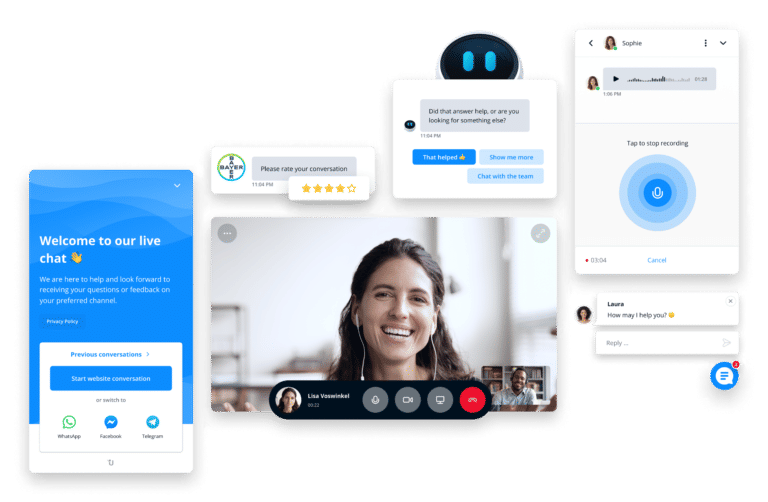
Key Features:
- Operator groups: Allows customers to select which department they wish to communicate with, eliminating waiting queues and clumsy choice menus.
- All-inclusive button integration: Provides a seamless experience for customers by keeping them on the same page during the chat, rather than redirecting them elsewhere.
- Forwards with context: If a chat needs to be forwarded, the chat transcript accompanies the forward, reducing the need for customers to repeat themselves.
- Sticky chat: Favors chat connections between visitors and operators who have chatted before, enhancing the relationship-building aspect of customer interactions.
- Smart customer profiles: Builds customer profiles automatically when a customer provides their email address.
- CRM integrations: Enables the forwarding of chat transcripts to your chosen CRM tool for follow-up on valuable leads.
Pros:
- Easy to set up with a wide range of useful features.
Here’s a user review on how easy it is to set up Userlike:
“I was totally impressed with how quickly and efficiently I was up and running. Then I noticed how many features were available to me that I will want to use at some point in the future.”- Randy R. | Userlike user
- Analytics to monitor average chat duration, response time, etc.
- Supports desktop, iPad, and mobile solutions, among others.
Cons:
- Pricing is considered high compared to other chat solutions.
- Can have a steep learning curve.
“It is a bit confusing how to add localisations to your website widget. There are a lot of features and configurations, so it takes some time to learn how to use them properly, but the defaults seem reasonable.” – Review from a Userlike user on G2
Pricing:
There’s a free plan available, but you can only add up to 1 agent in this. Paid plans start from $90 for 4 users/month and can go up to $290 for 10 users/month
13. Freshchat
Freshchat is a popular live chat software for customer service known for its no-code, easy-to-build chatbots that enable you to have conversations with your customers on your website or app. It also provides agents with complete customer context in real-time, enabling them to work faster and deliver timely services.
Best suited for: Well-suited for businesses of all sizes ,especially those already using Freshworks products.
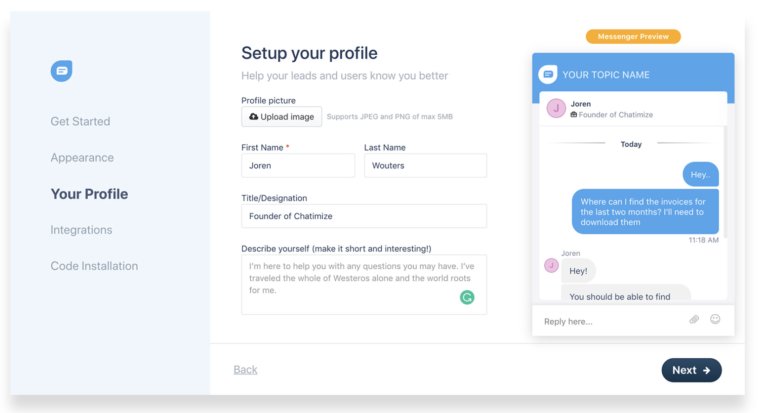
Key Features:
- Email and chat campaigns: Engage customers through targeted email and chat campaigns. Unlike generic chat greetings, chat campaigns are designed around specific objectives or audiences. For instance, a chat campaign could be set up to engage visitors who spend more than a certain amount of time on a particular page or to interact with returning customers by offering special discounts or assistance.
- Customizable chat widgets: Enables customization of chat interfaces to resonate with your brand’s theme.
- Advanced reporting metrics: Provides insightful metrics like reach, CTR, and open rates to evaluate the effectiveness and productivity of chat campaigns.
Pros:
- Comes with robust reporting and automation features. You can create your own reporting dashboard to gauge the effectiveness of campaigns.
“The chatbot automation has significantly improved our customer service efficiency. The ease of use, combined with its rich features like detailed reporting and analytics, has made tracking our customer support performance simple.” – Shahabuddin K. | Freshchat user
- Allows you to customize messaging to the great degree. You can also tweak the appearance of the chat window to reflect your brand’s identity in terms of colors.
Cons:
- FreshChat does not come with the Freshdesk suite. You have to buy it separately.
- Many users have found their support team unreliable and unresponsive.
“We had a terrible experience with them.
We spent days training their BOT, i worked fine for a few weeks. When we asked to increase our Bot Sesstion limit they CLOSED the account.
I opened about 5 tikets regarding this issue, but i got no answer so far.
In their TOS, there is a note saying that they will send you all the data from your account within 15 days after ending the collaboration. I asked. No answer.
I never believed a company can be this bad… I can`t believe what`s happening 🙂
We are searching for another ChatBOT.” – User review on Reddit
Pricing:
Freshchat has a free plan although it’s got limited capabilities. It’s paid plans start from $15/user/month and can go upto $69/user/month
Hiver vs Freshdesk: Reasons, Reviews, and Ratings
14. JivoChat
JivoChat combines live chat, VoIP, and business messaging into one centralized platform, helping teams communicate more efficiently. It integrates seamlessly with email, SMS, Facebook, and other channels through API, which enables teams like support, sales, and marketing to connect with customers effortlessly.
JivoChat helps you engage users effectively with features like customized chat widgets and targeted messaging. These features allow you to tailor interactions, boost customer satisfaction, and deliver a seamless multi-channel experience. For example, a custom chat widget can greet returning customers by name, while targeted messaging can send a discount code to users who abandon their carts.
Best suited for: Companies looking for a highly customizable chat solution that allows for a branded chat experience.
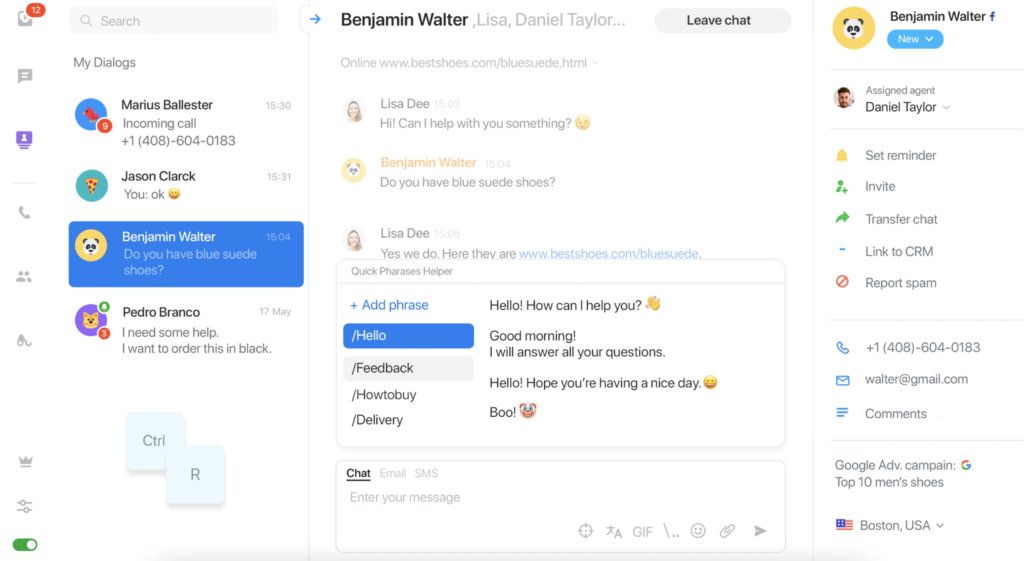
Key features:
- Omnichannel support: Integrates live chat with other communication channels such as emails, phone, and social media. This gives you a centralized view of all customer interactions.
- Visitor monitoring: Real-time visitor monitoring and pageview histories to understand customer behavior on your website.
- Customizable widgets: Offers customizable web and mobile chat widgets to align with your brand aesthetics.
- Canned responses: Provides pre-configured responses that you can use for commonly asked questions.
- Performance reporting: Offers reports on service quality and agent activity.
- File sharing and transfers: Allows file transfers between agents and customers for better communication.
- Multi-website support: Enables chat support across multiple websites from a single interface. For instance, say a business has three different websites for three different products. You don’t need separate chat support for each website if you’re using JivoChat. Instead, handle all chat interactions – irrespective of the website – from one single dashboard.
Pros:
- Multichannel integration with platforms like WhatsApp, SMS, and Messenger.
- Users have praised the tool’s ease of use.
“Easy to use & makes your business look great!
What do you like best about JivoChat?
My favorite thing about Jivo Chat is how easy it is to use both as an administrator and as a user. Training a new agent on using the platform is easy and doesn’t take much time. Plus, I appreciate how easy it is to add new agents or remove old agents.” – Rheanna Q. | JivoChat user
Cons:
- There is a feature where an agent can see what a customer is typing before they send it. This can be quite intrusive.
- Although the tool offers various features, users have found that many features do not work properly.
“There is a lot of the functions, but they are not working. For example the Mandatory to listen for telephony channel is not working at all. The customer support not even reply to our account… Very bad quality of technical support.” – Adnan S. | JivoChat user
Pricing:
Offers a free plan. Paid plan starts at $19/agent/month and can go upto $38/user/month.
15. LiveAgent
LiveAgent, a help desk ticketing system, offers a chat widget that supports customer interaction in over 40 languages.
The tool offers several key features, including Proactive Chat invitations. These allow businesses to assist customers at various stages of their journey. By providing timely support, it improves the shopping experience and boosts conversion rates.
Best suited for: SMEs that are looking to provide multilingual support since the live chat widget supports 40+ languages.
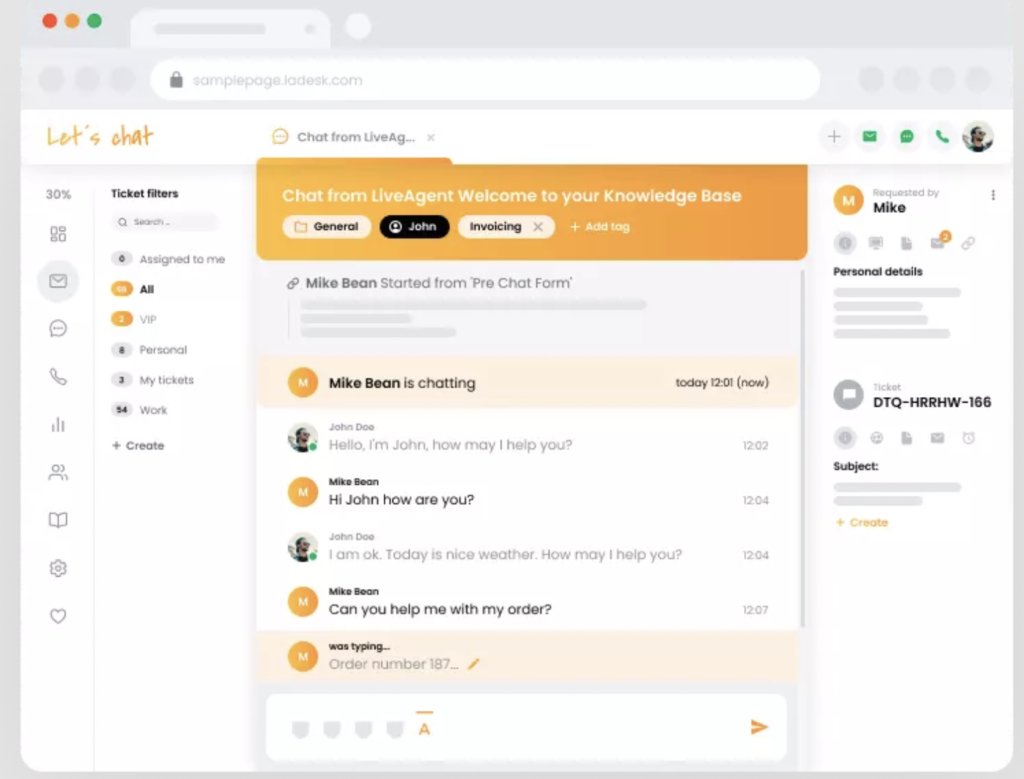
Key features:
- Customizable chat buttons: Tailor the appearance and functionality of chat buttons to match your brand.
- Proactive chat invitations: Initiate conversations based on specific triggers or visitor behavior.
- External app integrations: Seamlessly integrate with over 1000+ applications including Slack, HubSpot, and Salesforce.
- Smart chat routing: Direct chats to the right agents based on predefined criteria such as query type or urgency.
- Visitor tracking: Gain insights into visitor behavior and track metrics such as page visits, page sessions, and repeat visits, to provide personalized service.
- Multilingual chat widget: Cater to a global audience with multi-language support.
- Unlimited chat and ticket History: Retain all past interactions for reference and analysis.
Pros:
- Has an set of extensive features – ranging from internal notes to automated workflows.
“It has helped us streamline our customer interactions across multiple channels, including email, social media, and live chat. With its many built-in communication channels, it facilitates one-on-one conversations with customers to increase service sales; the ticketing system’s internal notes and comments feature keeps everyone in the loop, which improves collaboration and reduces the likelihood of miscommunication; and it works flawlessly with any website.” – Aleksandra K. | LiveAgent user
- Competitive pricing scales well for small businesses.
- Combines multiple channels into a single view for streamlined communication.
Cons:
- There might be a learning curve for those unfamiliar with live chat systems, or may require additional resources to maximize its potential.
- The mobile app is not that intuitive, according to some users.
“The mobile app’s performance is underwhelming, which is a major inconvenience, especially when managing tasks on the go. This limitation can impact the responsiveness and flexibility of our customer service.
Additionally, the lack of direct integrations with CRM systems and other apps is a substantial drawback. This creates a gap in our workflow, as we have to find workarounds or use additional tools to bridge this integration gap, affecting our efficiency and potentially leading to data silos.” – Frank S. | LiveChat user
Pricing:
Has a free plan. Paid plans start at $15/agent/month and can go upto $69/agent/month
Features to look for in a live chat software
Here’s a list of features that you need to look out for while selecting a live chat tool for your business.
1. Canned responses
Canned responses are pre-written, templatized messages that can be used to answer frequently asked questions. You also have the ability to personalize parts of a canned response – say customer name or complaint number – using tokens.
This feature wouldn’t just help with providing faster responses but personalizing interactions at scale.
For instance, say a customer reaches out regarding a delayed order and your support team needs more information about the order. The below canned response can be used in scenarios like this. Notice the touch of personalization in the response like:
“Hey <customer namer>, we are sorry to hear that your order has been delayed. Kindly share the order number with me, so I can look into it for you and follow up with our logistics team.”
2. Easy delegation of work and collaboration
It’s so important that your live chat tool has the ability to assign queries to support staff. This is fundamental to knowing who is working on what and driving accountability across your support team.
For example, when a customer reports a missing shipment, you should be able to assign the complaint to a support staff so that you can track updates related to the complaint whenever you want.
Similarly, the tool should also enable support staff to share chat histories across the team, so that it becomes easier to get inputs and collaborate on queries.
Let’s take the same example. When the customer reports a missing shipment, the support agent can share the chat with the logistics team to get the required details. Doing this cuts down the time it takes to respond to the customer.
3. Integrations with popular CRM tools
Choose a live chat tool that offers effortless integrations with various third-party platforms such as CRMs, helpdesks, E-stores, etc. Managing customer data on one platform and responding to customer requests on another is an uphill task. A live chat tool that offers multiple integrations will smoothen your workflows and reduce agent effort considerably.
4. Insights and reports
Tracking team performance is a must if you want to get better at delivering real-time support. This is why your live chat tool must equip customer support agents with in-depth analytics and reports.
For instance, your live chat app should be able to provide insights on metrics such as an agent’s first response time, average resolution time, the volume of conversations they are handling, and more.
Recommended Read: 63 Live Chat Templates for Customer Support
5. SLA monitoring
Let’s say your team handles hundreds of customer chats every day. In that case, how do you ensure no query is missed? More importantly, how do you ensure that every customer question is attended to on time?
This is where a live chat tool that provides SLA monitoring capabilities can be helpful. SLA-based reminders will make your teams more accountable and get them to prioritize chats better, in a bid to ensure that customer service standards established by the company are met.
For instance, you can set an SLA of 60 seconds for first response time. What that means is that if an agent doesn’t respond to a customer chat in 60 seconds, the chat is flagged as missed and the relevant manager/supervisor is alerted about it.
6. Automation
Although live chat is armed by human agents, automation plays a key role in making their lives easier. For instance, automation can be used to route chats to the right support staff, send proactive messages to website visitors, and provide links to knowledge base articles in responses.
For example, when a customer visits your pricing page and hesitates to proceed, your chat tool can pop a message like,
“Hi there! Do you have any questions about our pricing or plans? I’d be happy to assist you.”
This proactive engagement encourages customers to take action. By creating such automated workflows, support teams can focus less on repetitive tasks and focus more on responding to customers and ensuring that they provide the best possible service.
Real-World Examples of Businesses Using Live Chat Software
1. How Bank of America Scaled Customer Support with Live Chat Automation
Banking is a tricky business. Customers expect quick answers and personalized support, whether they’re checking their account balance or applying for a loan. Bank of America, one of the largest financial institutions in the world, recognized this need and decided to take their customer support game up a notch with live chat technology.
To tackle the daily flood of customer queries, the brand implemented a virtual financial assistant as part of their live chat system. This assistant could answer FAQs and also intelligently routing complex ones to specialized agents.
Bank of America used live chat proactively, reaching out to customers with targeted messages to share relevant updates or introduce new services based on individual banking habits.
The impact was massive. Their virtual assistant now engages with customers around 400,000 times daily, helping more than 5 million customers complete 75 million requests.
Key takeaways:
- Scalability: Bank of America’s live chat system handled over 75 million requests, easing the workload for human agents and allowing them to focus on complex issues.
- Efficiency through automation: Their virtual assistant managed 400,000 daily interactions, ensuring quick resolutions for routine queries and reducing response times.
2. Good Spa Guide increased their website traffic from chat conversations
Good Spa Guide is a website that helps you choose the right spa treatment for your needs. The brand implemented live chat software that helped them increase website traffic from social media.
The live chat software acted as a conversational guide, helping users navigate the site before they even got there. By chatting with the bot, customers were directed straight to the spa reviews they were looking for, saving time and making the experience feel effortless.
The results:
- 29% increase in website traffic within six weeks.
- 13% boost in spa bookings, turning more visitors into paying customers.
- 47% click-through rate on automated messages, showing just how engaging the bot was.
Key takeaways:
- Simplified navigation: The bot made it easier for users to find exactly what they needed before landing on the website.
- Better engagement: Automated conversations helped capture attention and drive traffic.
- Improved conversions: Directing users to relevant pages resulted in more bookings.
3. AskFirst’s Live Chat: Transforming Healthcare with Virtual Nurse Assistance
AskFirst, is a digital healthcare platform that is transforming how patients access medical services by integrating advanced live chat features with audio and video capabilities.
The company implemented a live chat software in their app. This way, patients can now interact with a virtual nurse via text or by speaking into their device’s microphone. This allows them to check symptoms, search for healthcare information, book appointments, or connect with a doctor over a video call—all in one seamless experience.
This small investment has a great impact on AskFirst’s business. The virtual nurse (which is a chatbot) automated the initial symptom checks, easing the load on healthcare professionals.
Askfirst has also witnessed over 500,000 registrations and was able to assess more than 1 million symptoms so far.
Key takeaways:
- Convenient healthcare access: Patients can quickly find help, from basic queries to virtual doctor visits.
- Improved efficiency: Automated initial check ups lets clinicians focus on more critical cases.
- Wide adoption: The platform’s success highlights how much patients value simple, personalized care.
Choose the best live chat software for your business
Customers today need immediate answers and live chat is a great way to meet those expectations. But just like with any other tool, there are way too many options in the market. Which is why it’s important to understand what your exact business needs are and choose one that meets those specific requirements.
We hope this list helps you with evaluating live chat tools for your business. And just in case you’d like to give Hiver’s Live Chat a spin, simply reach out to our experts and discover how you can offer quick and frictionless support to your customers.
Frequently Asked Questions (FAQs)
- What is live chat software?
Live chat software is a tool that allows businesses to communicate with their customers in real-time, through text-based chat. It’s like having a virtual receptionist available 24/7 to answer customer questions and provide support.
- How do I choose the right live chat software for my business?
When choosing live chat software, consider the following factors:
- Your budget: How much are you willing to spend?
- Your team’s technical skills: How easy is the software to use?
- Your customer’s needs: What features are important to your customers?
- Your business goals: What do you want to achieve with live chat?
- How much does live chat software cost?
The cost of live chat software varies depending on the features and the number of agents you need. Some providers offer free plans, while others charge monthly or annual fees.
- Can I integrate live chat with my existing website or CRM system?
Yes, most live chat software offers integrations with popular website builders and CRM systems.
- How can I measure the effectiveness of my live chat?
You can track key metrics such as average response time, customer satisfaction, and conversion rates.













